Filter by
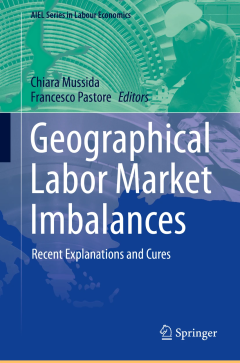
Geographies of Knowledge and Power
Interest in relations between knowledge, power, and space has a long tradition in a range of disciplines, but it was reinvigorated in the last two decades through critical engagement with Foucault and Gramsci. This volume focuses on relations between knowledge and power. It shows why space is fundamental in any exercise of power and explains which roles various types of knowledge play in the ac…
- Edition
- -
- ISBN/ISSN
- 978-94-017-9959-1
- Collation
- X, 347
- Series Title
- -
- Call Number
- 300 GEO

Genre Pedagogy in Higher Education
Based on a large action research project, this book elaborates on how genre-based pedagogy can be extended to engage non-English speaking background students in tertiary educational institutions to develop their academic literacy practice, using online resources.
- Edition
- -
- ISBN/ISSN
- 978-1-349-56171-1
- Collation
- XV, 298
- Series Title
- -
- Call Number
- 378 DRE g
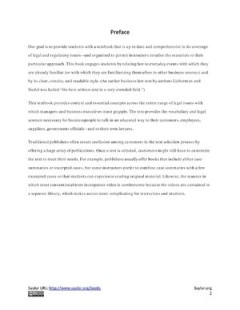
Law for Entrepreneurs
Law for Entrepreneurs is an up-to-date textbook that covers the broad spectrum of legal issues that entrepreneurs must understand when starting and running a business. The text is organized to permit instructors to tailor the materials to their particular approach. The authors take special care to engage students by relating law to everyday events with their clear, concise and readable style.Af…
- Edition
- -
- ISBN/ISSN
- -
- Collation
- -
- Series Title
- -
- Call Number
- 340
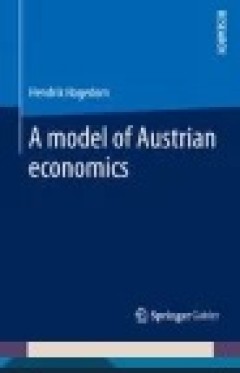
A model of Austrian economics
After the most recent financial crisis it has become clear that there exists a crisis also in economics as a science. The prevailing paradigms have failed to anticipate and to understand the financial crisis. New approaches are therefore needed. Of particular interest should be approaches that combine insights from those parts of economics that are largely neglected by the mainstream. Hendrik H…
- Edition
- Ed. 1
- ISBN/ISSN
- 978-3-658-07077-9
- Collation
- VIII, 104
- Series Title
- -
- Call Number
- 330 HAG m
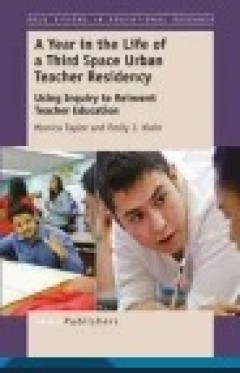
A Year in the Life of a Third Space Urban Teacher Residency: Using Inquiry to…
This book weaves together voices of faculty, residents, mentors, administrators, community organizers, and students who have lived together in a third space urban teacher residency program in Newark as they reinvent math and science teaching and teacher education through the lens of inquiry. Each chapter includes narratives from multiple perspectives as well as tools we have used within the pro…
- Edition
- Ed. 1
- ISBN/ISSN
- 978-94-6300-253-0
- Collation
- X, 304
- Series Title
- -
- Call Number
- 370 TAY y

A Wealth of Buildings: Marking the Rhythm of English History: Volume II: 1688…
This two-volume book explores how the great buildings of England bear witness to a thousand years of the nation’s history. In every age, investment in iconic buildings reaches a climax when the prevailing mode of production is operating most effectively, surplus wealth is most plentiful, and the dominant class rules supreme. During such periods of stability and prosperity, the demand for new …
- Edition
- Ed. 1
- ISBN/ISSN
- 978-1-349-94980-9
- Collation
- XXVI, 431
- Series Title
- -
- Call Number
- 330 BAR w
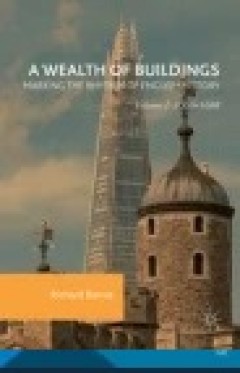
A Wealth of Buildings: Marking the Rhythm of English History Volume I: 1066�…
This two-volume book explores how the great buildings of England bear witness to a thousand years of the nation’s history. In every age, investment in iconic buildings reaches a climax when the prevailing mode of production is operating most effectively, surplus wealth is most plentiful, and the dominant class rules supreme. During such periods of stability and prosperity, the demand for new …
- Edition
- Ed. 1
- ISBN/ISSN
- 978-1-137-31921-0
- Collation
- XXVI, 337
- Series Title
- -
- Call Number
- 330 BAR w
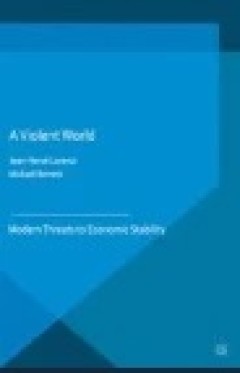
A Violent World: Modern Threats to Economic Stability
During the 1990s Francis Fukuyama announced the end of history. The 2000s showed how it is an illusion to imagine a peaceful world without conflict. In this book the authors explore how six major constraints are set to fix the trajectory of the global economy. Three of them are new: the aging population, the failure of technical progress, and the scarcity of savings. The other three have b…
- Edition
- Ed. 1
- ISBN/ISSN
- 978-1-137-58993-4
- Collation
- XIV, 181
- Series Title
- -
- Call Number
- 339 LOR v
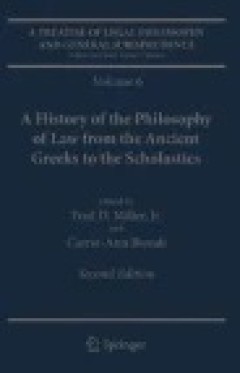
A Treatise of Legal Philosophy and General Jurisprudence: Volume 6: A History…
The first-ever multivolume treatment of the issues in legal philosophy and general jurisprudence, from both a theoretical and a historical perspective. The work is aimed at jurists as well as legal and practical philosophers. Edited by the renowned theorist Enrico Pattaro and his team, this book is a classical reference work that would be of great interest to legal and practical philosophers as…
- Edition
- -
- ISBN/ISSN
- 978-94-017-9885-3
- Collation
- XXVIII, 444
- Series Title
- -
- Call Number
- 340 TRE t
Real Options Valuation: The Importance of Stochastic Process Choice in Commod…
The Author shows that modelling the uncertain cash flow dynamics of an investment project deserves careful attention in real options valuation. Focusing on the case of commodity price uncertainty, a broad empirical study reveals that, contrary to common assumptions, prices are often non-stationary and exhibit non-normally distributed returns. Subsequently, more realistic stochastic volatility, …
- Edition
- -
- ISBN/ISSN
- 978-3-658-07493-7
- Collation
- -
- Series Title
- -
- Call Number
- 332
 Computer Science, Information & General Works
Computer Science, Information & General Works  Philosophy & Psychology
Philosophy & Psychology  Religion
Religion  Social Sciences
Social Sciences  Language
Language  Pure Science
Pure Science  Applied Sciences
Applied Sciences  Art & Recreation
Art & Recreation  Literature
Literature  History & Geography
History & Geography